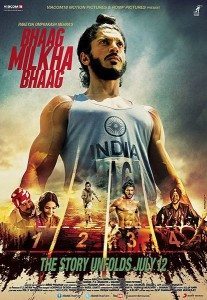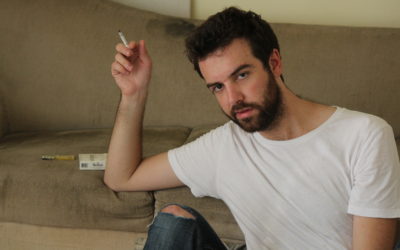Bhaag Milkha Bhaag – 5/5
A couple of weeks ago I wrote about the romantic drama Lootera, describing it as the best movie of the year. It may have to share that accolade, because Bhaag Milkha Bhaag is now in cinemas.
Indian track runner Milkha Singh was once the pride of India, leading his nation to victory at a friendly event held in Lahore in 1958. In a post-race speech Pakistan’s then leader Field Marshall Ayub Khan named him The Flying Sikh, a name which would live on through the years. However despite setting a national record over 400m which stood for forty years, and some sources indicating that he once broke the world record, he is remembered as something of a flawed hero. In the 1960 Rome Olympics, as he led a pack of sprinters toward the finish line, he erred and looked back over his shoulder, thus slowing him down. He still broke an Olympic record but three men finished ahead of him, denying him a podium finish. His treatment at the hands of the press was merciless.
That is the premise of Bhaag Milkha Bhaag (Run Milkha Run), a comprehensive semi-biographic movie which follows the life and times of Milkha Singh. It is worth noting here that the movie claims to be “inspired by” Singh’s life, not a complete documentation of it. Farhan Akhtar is the man charged with portraying Singh, a role he fulfils perfectly. Akhtar’s physical transformation for this movie is nothing short of remarkabale. His energy and enthusiasm for the role is clearly visible in his screen presence. Sonam Kapoor, who plays his love interest, has a surprisingly small role, but is adequately pleasant. Master Japtej Singh, who brilliantly portrays the young Milkha, is a standout talent. Supporting roles are all perfectly drawn too – Divya Dutta and Pawan Malhotra are memorable as Milkha Singh’s sister and coach. But the show undoubtedly belongs to Farhan Akhtar, who depicts the mature Singh as he deals with his inner demons. Bhaag Milkha Bhaag’s music is also deliciously rendered with a contrasting medley of joyous, sometimes devotional Punjabi beats and raw angry rock. Shankar-Ehsaan-Loy shine with tracks like Zinda and Mera Yaar.

Farhan Akhtar underwent a remarkable physical transformation for his role in Bhaag Milkha Bhaag (Image: IBN Live)
Rakeysh Omprakash has directed a beautifully tragic tale. The first half is stunningly told in vibrant colour as Singh grows up in Punjab, Delhi and Secunderabad. It seems to draw inspiration heavily from the direction of Slumdog Millionaire, and the vivid hues of the Punjabi countryside are reminiscent of Pankaj Kapoor’s Mausam. The second half is markedly darker, and the focus is almost solely on the acting. The second half is also when you start to notice the length of the movie – at over three hours, this emotional drama has the potential to become exhausting by the time Milkha starts breaking records. Omprakash does keep us enthralled though, as we seek answers as to why he faltered at the Rome Olympics. The dark truth is exposed, but perhaps a little too late for some. Omprakash also makes an effort to draw out of the foreign cast more than simply one dimensional characters. Their script is unfortunately too restrictive, however, and again we see the standard crew of brainless white characters that is so familiar in the Hindi film industry. The issue of Pakistan is also handled with remarkable restraint, and only very occasionally falls into common trap of allowing Indian nationalism to eclipse the sense of story.

Bhaag Milkha Bhaag could prove to be a turning point in Farhan Akhtar’s career (Image: Indian Box Office)
Simply, Bhaag Milkha Bhaag, much like its main subject, is a flawed diamond. However it is a diamond nonetheless, and a very beautiful one at that. It is certainly a landmark in Indian cinema, if only for its epic emotion. The other milestone which some commentators have pointed to that it marks Farhan Akhtar’s transition to a one-man hero, who can carry a movie not just as a producer or co-actor, but as an artist. We have known for years that Akhtar is a man of great professionalism and integrity, but in Bhaag Milkha Bhaag he shows the world just how much of a professional he is.





0 Comments